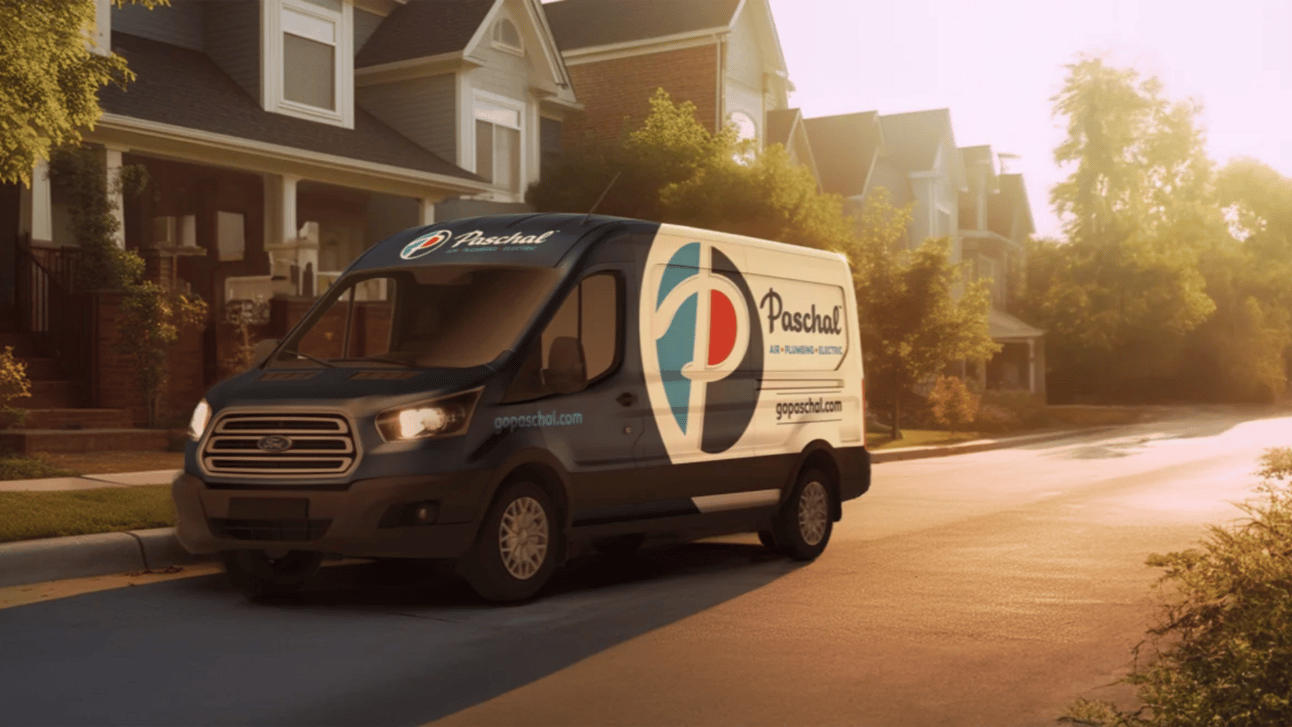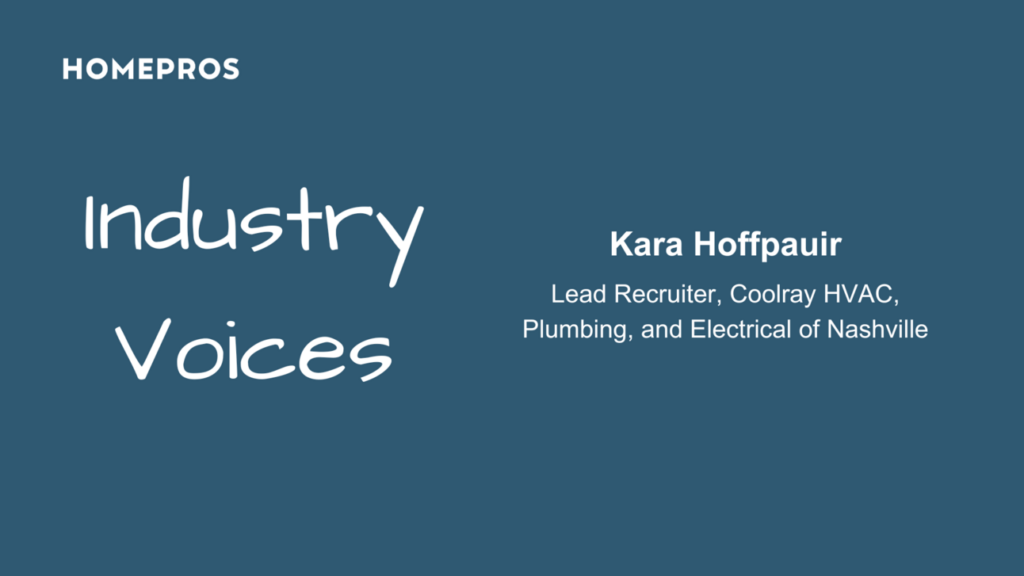“As the culture goes, so goes the company”: How Paschal Air, Plumbing & Electric has built a winning culture
The company has grown to nine locations across four states — with the help of one thing, according to Sales Director Jake Winchell: Culture

Image: Paschal Air, Plumbing & Electric
I recently saw a video tour of Paschal Air, Plumbing & Electric’s headquarters in Northwest Arkansas, and it took me two minutes to remember that I wasn’t looking at one of Google’s offices.
-
I wanted to know the logic behind the office investment, so I reached out to Jake Winchell, Paschal’s Sales and Marketing Director, and it turns out there’s a lot more than meets the eye.
The big picture: Paschal has grown from a single shop to nine locations across four states and 350+ employees — with the help of one thing, according to Winchell: Culture.
Bring ‘em in: The company views its culture as a major differentiator.
-
“Charley, our CEO, really set the tone and created an amazing culture. We felt that we caught lightning in a bottle and knew it’d be critical to maintain that same vibe as we expanded,” Winchell says.
-
“That’s why we do tours and have nice trucks, nice tools, and perks and benefits for employees. If an employee can go across the street for a better opportunity, we’re not upholding our promise,” he adds.
“So when someone comes in, it’s really just a proof test. ‘Hey, I’ve heard great things, but is it real?’ Then we get to make sure we’re hiring for a culture fit instead of settling for an available technician,” Winchell notes.
-
The company also uses speed as a recruiting tool. “Historically, we were too slow to act once a good candidate applied, and we weren't great at onboarding,” he says.
-
“We’ve put a lot of effort into the hiring experience as a whole: Communication, time to hire, orientation, etc.”
Keep ‘em around: Paschal implements several initiatives to retain employees.
-
Sentiment surveys: “In our industry, we’re well aware of customer feedback — Google is a wonderful thing — but we don’t get that type of feedback from employees. So, we segment surveys by department and ask, ‘Are we working well as a team? Do you feel supported by your direct manager? Do you feel like you’re compensated well?’ Those surveys have given us a lot of good ideas around workflow automation from folks out in the field.”
-
DiSC: “We’re transparent with personality assessments — we use DiSC, and everybody’s profiles are available to everyone so we know how to communicate effectively as a team. They also provide another good data point in the hiring process.”
-
Gamification: “We have KPI scoreboards at every location, and we’ve had some fun with them. If you’re in the top ten of the HVAC service department for the month, you can pick a ‘skin’ like in Fortnite. So a guy can have his head turned into Hulk Hogan [on the scoreboard] — the guys get a kick out of it.”
-
Pay transparency: “Some companies, us included, have historically made pay too complicated. When poaching season arrives, every company’s willing to pay a couple extra bucks per hour, and if our people don’t understand their true take-home income because we’ve made it too complicated, that’s our fault. So we’ve simplified the visibility so everyone fully understands what they’re making.”
Scaling culture: After a few acquisitions, Paschal realized that HQ knew the “why” behind its efforts, but some of the newer locations didn’t.
-
“We took the impactful core efforts for a single location and digitized them — we invest heavily in video,” Winchell says.
-
“For example, we have a weekly video update from Charley that’s pushed throughout the company, and essentially, Charley’s at every single meeting,” he adds.
“We also do some fluffy stuff. Every Friday morning, one of our culture people shares birthdays, anniversaries, and special events in a video,” Winchell notes.
-
“This morning, it was pictures of three employees as kids, and it said, ‘Guess who you think this.’ It’s cheesy, but it’s fun and people enjoy it.”
Culture is localized, too. “As we grow, we’re giving more autonomy to our local GMs. Yes, our uniforms and trucks look a certain way, and we communicate with customers in a certain way, but if our Arlington location wants breakfast burritos and Oklahoma City prefers team-building lunches, go for it.”
Yes, but: Not everything worked perfectly. “When we switched to four-day work weeks, the rollout was bumpy because we mandated it — we didn’t make it optional,” Winchell says. “And we lost a couple really good technicians because they didn’t want to switch.”
-
It wasn’t long before four-day work weeks became an optional shift, alongside five-day work weeks — to give technicians “options, not obligations,” he adds.
Technology: Most of the company’s culture efforts are managed from Microsoft SharePoint, which it customized and nicknamed “Paschal Pulse.” It houses videos, DiSC profiles, training resources, and more.
-
“We customized it by department, so if you’re in office support, you might have operational, ‘remember this workflow’ stuff, and if you’re a technician, it’s mobile friendly and might include driver safety stuff,” Winchell says.
-
Its KPI scoreboards are also custom-built using Google Data Studio.
The bottom line: “Whether you have 12 or 350 employees, you really have to live your culture out. It gets talked about a lot, and it’s all good, but you have to do it,” Winchell notes.
-
“We had a great culture when we were just one location, but as we expanded, maintaining that became exponentially more challenging. We know that scaling culture is difficult, but we also feel that if we can nail it, there's a huge opportunity.”
📬 Get our stories in your inbox
Keep reading
What the HVAC industry is saying in D.C. — Part 1: Labor
Notes from the industry's May visit to Washington
EverCommerce acquires Kickserv, expands its field service portfolio
September 25, 2023
Industry Voices: Coolray of Nashville’s Kara Hoffpauir
September 29, 2023


